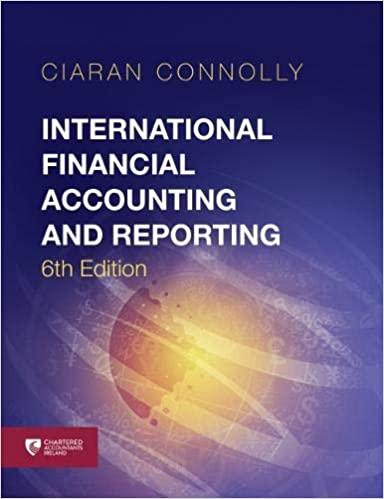Seamus plc manufactures and operates a fleet of small aircraft. It draws up its financial statements to
Question:
Seamus plc manufactures and operates a fleet of small aircraft. It draws up its financial statements to 31 March each year. Seamus plc also owns a small chain of hotels (carrying value of 16 million), which are used in the sale of holidays to the public. It is the policy of the company not to provide depreciation on the hotels as they are maintained to a high standard and the economic lives of the hotels are long (20 years' remaining life). The hotels are periodically revalued and on 31 March 2018, their existing use value was determined to be 20 million, the replacement cost of the hotels was 16 million and the open market value was 19 million. One of the hotels included above is surplus to the company's requirements as at 31 March 2018. This hotel had an existing use value of 3 million, a replacement cost of 2 million and an open market value of 2.5 million, before expected estate agent's and solicitor's fees of 200,000. The company wishes to revalue the hotels as at 31 March 2018. There is no indication of any impairment in the value of the hotels. The company has recently finished manufacturing a fleet of five aircraft to a new design. These aircraft are intended for use in its own fleet for domestic carriage purposes. The company commenced construction of the assets on 1 April 2013 and wishes to recognize them as non-current assets as at 31 March 2015, when they were first utilized. The aircraft were completed on 1 January 2015, but their exterior painting was delayed until 31 March 2015.
Requirement:
(a) Explain how the hotels should be valued in the financial statements of Seamus plc on 31 March 2015 and explain whether the current depreciation policy relating to the hotels is acceptable under IAS 16 Property, Plant and Equipment.
(b) Show the accounting treatment of the aircraft fleet in the financial statements on the basis of the above scenario for the financial years ending on:
(i) 31 March 2015;
(ii) 31 March 2016 and 2017;
(iii) 31 March 2018, before revaluation.
(c) Discuss the economic consequences of asset revaluations.
Step by Step Answer:

International Financial Accounting And Reporting
ISBN: 9781912350025
6th Edition
Authors: Ciaran Connolly





